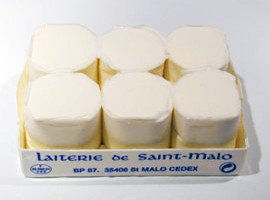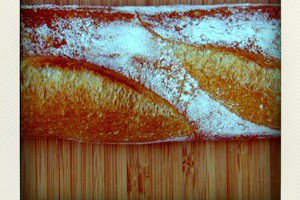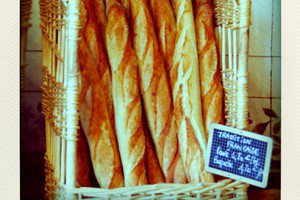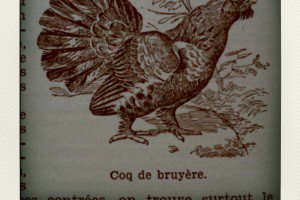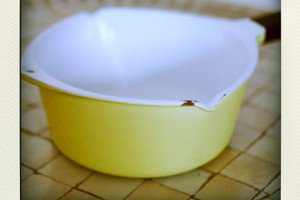
Photography by J. Annie Wang.
This is part of a series on French idiomatic expressions that relate to food. Browse the list of idioms featured so far.
This week’s expression is, “Se vendre comme des petits pains.”
Literally translated as, “selling like small breads,” it means selling like hotcakes, i.e. selling quickly, effortlessly, and in large numbers. It is very commonly used.
Example: “Les exemplaires signés par l’artiste se sont vendus comme des petits pains.” “The copies signed by the artist sold like hotcakes.”
Listen to the idiom and example read aloud:
(If no player appears, here’s a link to the audio file.)
The term petit pain is used for small, fist-sized loaves of bread — what you might call a bread roll or a dinner roll. It’s the kind of bread that may be served at an upscale restaurant, as individual little loaves look fancier than slices cut from a larger loaf.
They are also a popular item at bakeries nowadays, made with different types of flour and garnished with all sorts of ingredients. Part of their success, I think, is that the petit pain feels like a treat — a little loaf of bread just for myself — and it’s a low-commitment format, too. You can go crazy and try that pineapple and reblochon roll: if you don’t like it, at least you won’t have the entire loaf looking at you sideways.
This idiom appeared in the late nineteenth century, and it refers to the irresistible appeal of these little loaves, especially because they were cheaper to buy than a large loaf, so people living day-to-day would have favored these.
Whenever I hear this idiom, I picture a stand in a narrow and busy paved street of the old Paris. A baker comes in with a large wicker basket piled with little loaves, fresh from the oven, and before he even has time to unpack his load, the stand is thronged with ladies in bonnets and long skirts extending their hands and their coins to buy them. (But that’s just me.)
Older occurences of the idiom sometimes go so far as to specify “comme des petits pains chauds” (like warm bread rolls) or “comme des petits pains blancs” (like white bread rolls), the latter a reminder that bread made with white flour was, until recently, favored over any other sort.
The verb is also subject to variation, and I’ve seen the form “partir comme des petits pains” (partir, which ordinarily means “to leave,” is used here in the sense of disappearing) and “s’enlever comme des petits pains” (enlever, which ordinarily means “to remove,” is used here in the rarer meaning of buying a merchandise and taking it away quickly).





